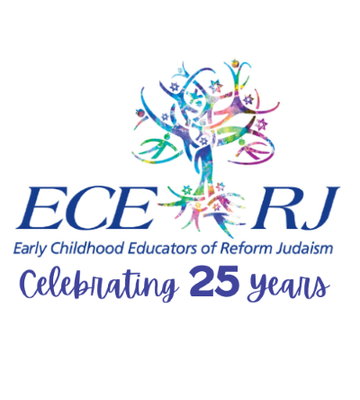Activity
-
Rebecca Baizen posted an articlePlanting Seeds of Identity: The Sacred Work of Jewish Early Childhood Education and the Professional see more
Walk into a Jewish early childhood classroom, and you’ll find more than finger paints and story time. You’ll find children learning to say shema with tiny hands covering their eyes, lighting Shabbat candles with joy, and dancing to Hebrew songs that echo through generations. You’ll see the beginnings of a lifelong relationship with Jewish tradition, language, values, and kedosha - community.
Jewish early childhood education is more than a service—it’s a sacred responsibility. And yet, the professionals who carry out this holy work are often under-recognized and under-compensated. Presently, we find ourselves at a pivotal time in education, with early childhood professionals feeling pressure to leave the field, not because they have lost their passion, but because they can’t afford to stay. It is time to change this narrative.
Jewish early childhood programs do more than prepare children for school—they help shape Jewish identity from the very beginning. Through rituals, songs, holidays, Hebrew language, and stories of our people, young children begin to understand who they are and where they come from.
These early experiences don’t just build literacy and social skills. They build neshama—spirit. They create connection and lay the groundwork for lifelong engagement in Jewish life and community. Early childhood educators are the front-line ambassadors of Jewish continuity. They do all of this with patience, warmth, and professionalism—often with limited resources and minimal compensation. It is holy work. And it deserves holy recognition.
If we believe in the power of Jewish education, we must invest in the people who bring it to life. That means:
-
Fair compensation for educators who do essential, demanding, and deeply meaningful work
-
Professional development opportunities that empower teachers to grow and lead
-
Communal recognition of early educators as builders of Jewish identity, not just caretakers
This is not just about paying teachers more. It’s about lifting up an entire profession—and, in doing so, strengthening the foundation of Jewish life for generations to come. Our sages teach us about the importance of torah, avodah, and gemilut chasadim—learning, service, and loving-kindness. Jewish early childhood educators embody all three.
This isn’t just a workforce issue. It’s a Jewish future issue. We must honor this work, elevate this profession, and build a stronger Jewish future—together.
Jen Schiffer
Early Childhood Center Director
The Community Synagogue of Port Washington
- Julie Harris likes this.
-
-
Jill Cimafonte posted an articleAdvocate for early learning and childcare! Subsidies ending soon, use your voice. see more
The COVID-19 pandemic illuminated the importance and necessity of early learning and childcare to millions of people. The pandemic didn’t create it - it exposed it and has helped to bring our industry to the forefront of politician’s agenda as they now realize how our work directly impacts the economy, society, and child growth and development.
As directors of ECE’s, many of us continue to struggle in finding qualified educators to work in our centers. Many educators have left the field because they are not earning a sustainable wage. State and federal subsidies have allowed some of us to raise salaries (slightly) and provide bonuses. This still does not address the pay disparity of educators that work in public schools versus those in early childhood centers, but it is at least a step in the right direction.
These subsidies are ending shortly. What do we now?
I have decided to use my voice and share my concerns with our government. Our elected officials are not experts in early learning and childcare, but WE ARE, and our industry is in dire risk if there isn’t a comprehensive, long-term investment in affordable, high-quality childcare.
I recently attended the National Association for the Education of the Young Child’s (NAEYC) Public Policy Forum in Washington, D.C. where I spent a day and a half learning about our very confusing governmental system (I think I was absent that year in high school!). Even though I still understand very little, it did not preclude me from joining our diverse team of 13 New Jersey early childhood educators in meetings with our two New Jersey State Senators and House Representative where we made our case on the importance of increasing educator compensation. This was an incredibly powerful experience. They actually listened and even took notes! I wish I could say that our meetings that day were all that we needed for change to happen, but it is not enough. If I can do it, YOU can do it! I urge you to reach out to your state and federal legislators and be heard. Together, we can make a difference.
Jill Cimafonte
Director of Early Childhood Education
Temple Emanu-El
Westfield, NJ



